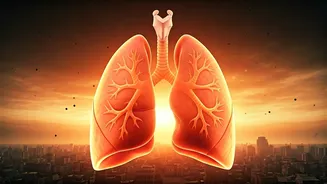Respiratory Problems Rise
Air pollution substantially affects the respiratory system, inducing a cascade of problems. Irritation within the respiratory tract is a common outcome,
bringing about symptoms such as coughing, wheezing, and breathlessness. Asthma and bronchitis, often exacerbated by polluted air, can become more frequent and severe. Extended exposure can permanently impair lung function, a concerning long-term consequence. Consider the everyday challenges, from simple tasks to physical activities, all of which are made harder by reduced lung capacity. Regular exposure to polluted air makes breathing a struggle, and it elevates the risk of chronic respiratory diseases.
Children and Pregnant Women
Children and pregnant women represent particularly vulnerable groups when it comes to air pollution. Developing lungs and brains in children are at increased risk due to their sensitivity to pollutants. During pregnancy, air pollution can have adverse effects, increasing the chance of low birth weight and other developmental issues for the baby. Imagine the delicate stages of growth, the foundation of a lifetime; these are being compromised by environmental factors. Protecting these vulnerable populations requires prioritizing air quality improvements.
Cognitive Decline Concerns
Long-term exposure to polluted air is associated with cognitive decline. Research indicates a link between persistent exposure and impaired memory, reduced focus, and a higher risk of conditions like Alzheimer's and dementia. Think about the implications: everyday mental sharpness, the ability to recall information, and the capacity for clear thinking may all be affected. The link highlights the need to consider the long-term impact on cognitive health, especially for those living in polluted areas, and to explore strategies that could potentially mitigate these risks. Addressing air quality could be an important step in protecting cognitive function.
Impact on Skin Health
Air pollution has noticeable effects on skin. Pollutants in the air can clog pores, leading to breakouts and skin irritation. Moreover, air pollutants can break down collagen, which leads to premature aging, dullness, and inflammatory conditions such as eczema or acne. Imagine pollutants settling on your skin day after day, and gradually impacting its health. The appearance and health of the skin can deteriorate with constant exposure, underscoring the importance of skincare practices, especially in polluted environments. Protecting the skin from environmental stressors is essential for maintaining a youthful complexion.
Heart Disease Risks
Fine particulate matter (PM2.5) in polluted air poses a significant risk to cardiovascular health. PM2.5 can infiltrate the bloodstream, thus increasing the likelihood of high blood pressure, heart attacks, and other cardiovascular conditions. This illustrates the complex ways air pollution influences health. Cardiovascular issues, which are serious in themselves, can become more common. This connection underscores the need to mitigate air pollution to reduce the threat it poses to cardiovascular health, protecting overall health in the long run.
Weakened Immune System
Continuous exposure to polluted air can undermine the immune system. Pollutants weaken the body’s natural defenses, decreasing its ability to combat infections. Consequently, individuals become more prone to common ailments like colds, flu, and other respiratory illnesses. Frequent illnesses can disrupt daily life, impacting productivity and overall quality of life. Improving air quality can bolster immune defenses, and increase resistance to infections, helping individuals stay healthy.















